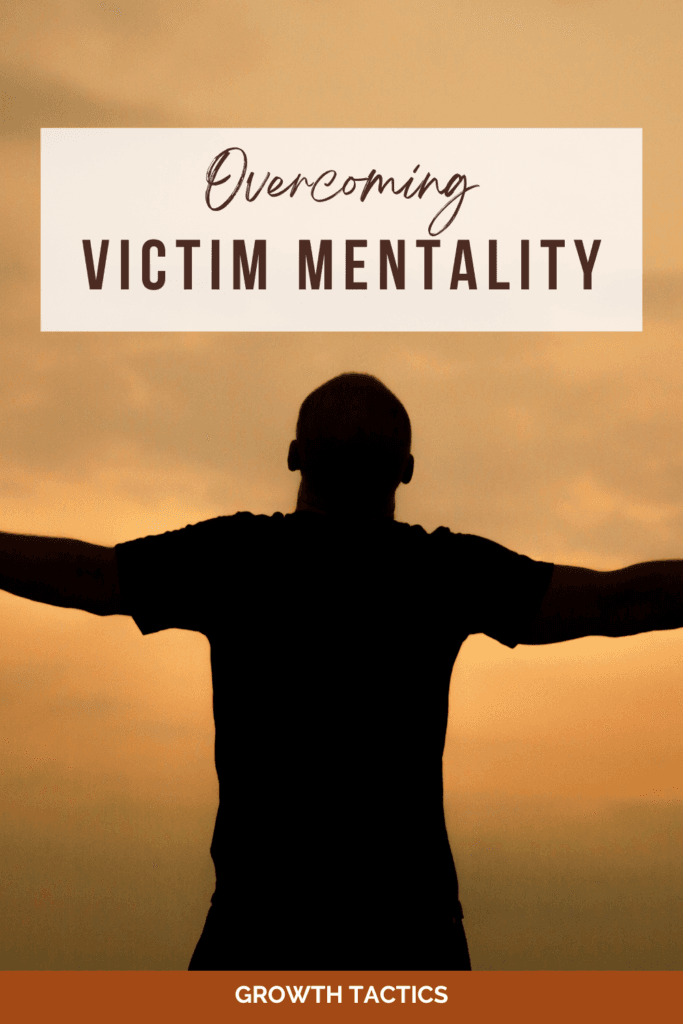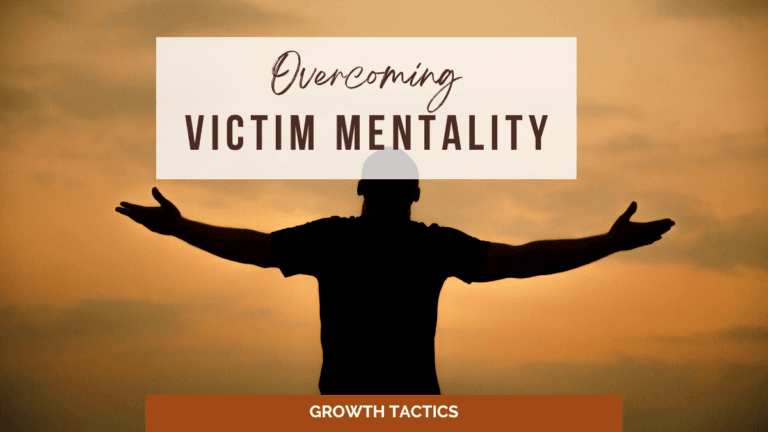Let’s talk about something that rocked my world, and might just change yours too. A few years back, I was gunning for a big promotion at work. I worked my tail off, put in long hours, and really thought I had it in the bag. But when the big day came, guess what? They gave it to someone else.
Talk about a punch to the gut. I felt like a victim, like the world was out to get me. I’d walk into the office feeling angry and resentful. Does that sound familiar to you?
That’s what we call a victim mentality. It’s like wearing dark sunglasses indoors, everything looks gloomy and unfair. But here’s the kicker, you can take those glasses off!
One day, I decided to stop feeling sorry for myself. I looked in the mirror and said, “It’s time to take charge of your career.” And you know what? Things started to change. I found my true path, and it felt amazing.
Now, I’m not saying it was a walk in the park. But it was worth every step. And I bet you’ve got that same strength inside you. Think about a time when you felt passed over or stuck. How did you handle it? What if you could turn those tough moments into springboards for success?
Today, let’s make a deal. Let’s kick that victim mindset to the curb and find our true paths. Are you ready to take the first step toward overcoming victim mentality and being the leader of your own life? Trust me, you’ve got what it takes!
Jump To Section
What is a victim mindset?
It’s like wearing a pair of glasses that make everything look unfair. You feel powerless like life’s just happening to you. I remember feeling this way after that promotion slip-up. I thought, “Why even try? Nothing ever goes my way.”
But here’s the truth: a victim mindset is just that, a mindset. It’s a way of thinking we can change.
Signs you might be stuck in victimhood
- You often say, “It’s not fair!”
- You blame others for your problems
- You feel powerless to change your situation
- You focus on the negative more than the positive
Sound like familiar behavior? Don’t worry, we’ve all been there.
How trauma and neglect can lead to adopting a victim mentality
Life can be tough. Sometimes, really tough. Maybe you’ve been through some rough patches that left scars. I get it.
Trauma and neglect can take a toll on our mental health and make us feel helpless. It’s like our brains get stuck in “protect” mode. We start seeing threats everywhere, even when they’re not there.
But here’s the good news: you’re not alone, and you’re not stuck.
Think about your own life for a second. Can you spot any of these signs? Maybe you’ve been carrying around some old hurts, too?
Here’s a practical tip: Start a “win” journal. Every day, write down one thing you did well or one good thing that happened. It might feel silly at first, but stick with it. You’re training your brain to spot the good stuff.
Remember, though, what works for me might not work for you. You’re unique, and your path to breaking free will be unique too. Trust yourself to find what works best for you.
So, here’s your challenge: This week, catch yourself when you’re thinking like a victim. Then, ask yourself, “How can I take charge of this situation?” You’ve got more power than you think. It’s time to use it!
The Hidden Costs of Playing the Victim
Let’s get real for a minute. Playing the victim might feel good in the short term, but it comes with a debilitating price tag. Trust me, I’ve been there.
Impact on relationships and career
Remember when I mentioned that promotion slip-up? Well, it didn’t just affect my job. My “woe is me” attitude started seeping into my personal life too. Friends started avoiding me. My partner felt drained. At work, I missed out on opportunities because I was too busy feeling sorry for myself.
Here’s the thing: people want to be around positive energy. When you’re stuck in victim mode, you push others away without even realizing it.
Feelings of helplessness and resentment
It’s a sneaky trap. The more you play the victim, the more helpless you feel. And that helplessness? It breeds resentment. You start feeling angry at the world, at others who seem to have it easier. I found myself getting jealous of coworkers’ successes instead of celebrating with them.
The cycle of seeking sympathy and validation
This is where it gets tricky. When you’re in victim mode, you crave sympathy. It feels good when people say, “Oh, you poor thing!” But here’s the kicker: that good feeling doesn’t last. So you seek more sympathy and compassion, and the cycle continues.
Think about your own life. Have you ever caught yourself fishing for sympathy? Trying to be the martyr? How did it make you feel afterward?
Here’s a practical tip: Next time you’re tempted to complain, try flipping the script. Instead of saying, “Why does this always happen to me?” ask, “What can I learn from this?” It’s a small change, but it can make a big difference.
Step-by-Step Guide for Overcoming the Victim Mindset
Ready to ditch the victim mentality and step into your power? Let’s roll up our sleeves and get to work. I’ll walk you through six game-changing steps that’ll help you take charge of your life.
Step 1: Recognize Your Victim Mindset
First things first: you gotta spot the problem to fix it. Try this: for one day, jot down every you blame someone else for your problems. You might be surprised!
People with a victim mentality often think, “Why does this always happen to me?” or “It’s not fair!” Sound familiar? I used to catch myself saying these things all the time.
Remember, life can be tough sometimes. That’s real. But staying stuck in “poor me” mode? That’s a choice. And you’ve got the power to make a different one.
Step 2: Take Responsibility for Your Life
This is where the magic happens. When you take accountability for your choices, you own your life. It’s not about beating yourself up. It’s about taking the wheel.
Stop blaming your boss, your partner, or the weather for your mood. Instead, ask yourself, “What can I do about this?”
I remember when I bombed a big presentation. At first, I blamed everything, my team, the tech, even the room layout! But when I finally owned up to my lack of prep, that’s when things changed. I worked harder, and guess what? My next presentation knocked their socks off!
Step 3: Develop Coping Mechanisms
Life’s gonna throw curveballs. That’s a given. But you can choose how you catch ’em.
Try this: next time you’re stressed, take three deep breaths before reacting. Sounds simple, right? But it works wonders.
Self-care isn’t selfish, it’s necessary. Whether it’s a workout, a hobby, or just a quiet cup of coffee, make time for you.
Step 4: Reframe Your Narrative
You’re the author of your story. So why not make it a bestseller?
Instead of “I’m terrible at public speaking,” try “I’m learning to be a confident speaker.” Small shift, a big difference.
Challenges? Nah. Let’s call them growth opportunities. Sounds cheesy, but trust me, it changes everything.
And hey, cut yourself some slack. You’re doing the best you can with what you’ve got. That’s worth celebrating.
Step 5: Embrace Your Power to Choose
Every day, you make choices. What to wear, what to eat, how to react. That’s power, my friend.
Next time you’re in a tough spot, pause. Ask yourself, “What are my options here?” There’s always more than one, even if it doesn’t feel like it.
I once had a project fall apart at the last minute. Instead of panicking, I chose to see it as a chance to innovate. We ended up creating something even better than the original plan.
Step 6: Find Your Purpose
This is the big one. When you know your ‘why,’ you can handle any ‘how.’
What gets you fired up? What would you do even if you didn’t get paid? That’s the clue to your purpose.
Your struggles? They’re not just problems. They’re preparation. Use what you’ve learned to lift others up.
Now it’s your turn. Take these steps and make them your own. Your journey won’t look exactly like anyone else’s, and that’s the beauty of it.
So, what’s your first move? Pick one step and take action today. Remember, you’re not just changing your mindset, you’re changing your life.
Conclusion
You’ve got the tools now. It’s time to put them to work. Remember, breaking free from a victim mindset isn’t a one-time thing, it’s a journey. Some days will be easier than others, and that’s okay.
What matters is that you keep moving forward. Take it one step at a time. Celebrate your wins, learn from your setbacks, and always keep your eyes on your purpose.
You’re not just changing your thoughts; you’re changing your life. And as you do, you’ll inspire others around you.
So, what’s your next move? Pick one thing from this guide and start today. Your future self is cheering you on. You’ve got this!


